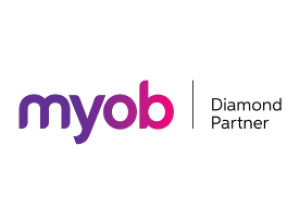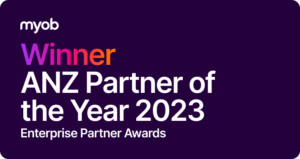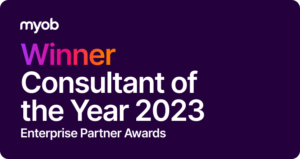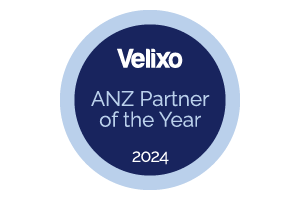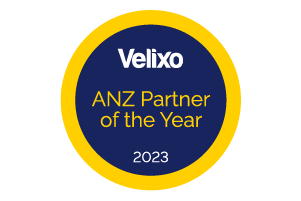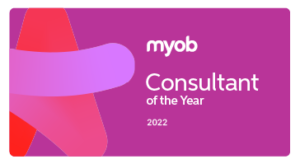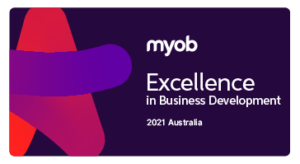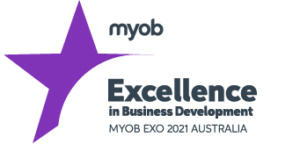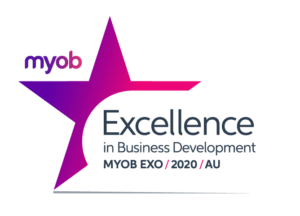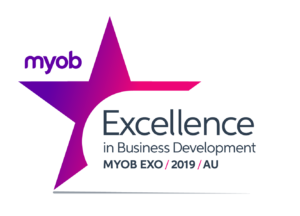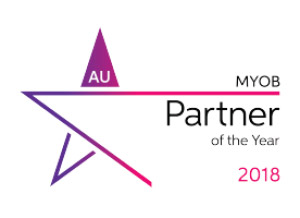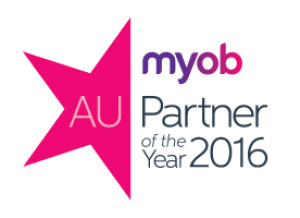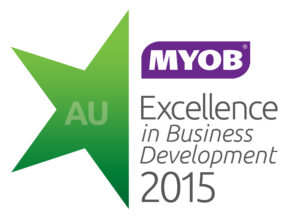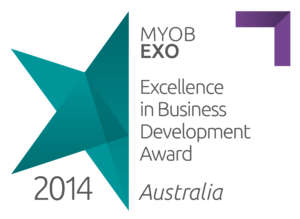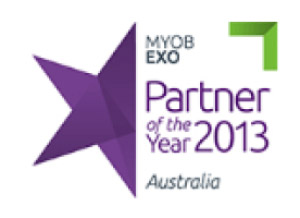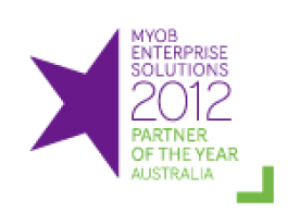ERP in the Cloud – Benefits and Challenges
Making a choice surrounding cloud-based software? Read the benefits and challenges before deciding whats best for your businessMaking a choice surrounding cloud-based software? Before deciding what is best for your business, read about the benefits and challenges.
A cloud-based Business Management Platform brings many benefits but also some challenges. Despite all the data pointing to the efficiencies, cost-benefits, and competitive advantages the cloud can bring, a substantial portion of the business community continues to operate without it. If you are wondering what sort of impact cloud Software as a Service (SaaS) might have, consider the risks and benefits of such a change.
What is ERP in the Cloud?
Cloud-based Enterprise Resource Planning (ERP) systems are typically built on innovative technology that provides the same functionality as an on-premise ERP system. With the right business management platform, you can oversee your entire operation from one place, improving efficiency and streamlining workflows. However, the cloud offers unparalleled flexibility and accessibility.
Benefits of a Cloud ERP
Implementing a cloud-based ERP system for your organisation can benefit significantly, including productivity improvements. Hybrid-cloud solutions are also available as a stepping stone on your pathway to the cloud. The cloud naturally facilitates innovation and collaboration, bringing many benefits to modern organisations:
- Unparalleled data accessibility via any browser
- Real-time data insights and analytics
- Scalability and elasticity
- Cost savings and practicality
- Business continuity
- Security and Privacy
- Integration through Application Programming Interfaces (API)
- Automatic updates
Easy Access and Greater Data Visibility
Cloud systems are accessible wherever you have an internet connection, capable of improving your organisation’s mobility. This means that any web browser or mobile phone can become your workstation, able to instantly access and analyse your data. Working remotely is simplified as your team has regular access to data when offsite. Through the cloud, your sales staff, who travel, freelance employees, or remote employees, will all have secure access to live, accurate data at any time.
Because everyone on your team is accessing data from the same place – regardless of their actual location – they are all seeing the same data. Gone are the days of worrying about version control and read-only documents. The cloud keeps everything up to date as it happens.
Data Analytics in Real-Time
Many cloud-based solutions offer integrated cloud analytics so that you can have a complete view of your data. Customised reports can analyse information organisation-wide – with the same information accessed from a single source of truth. Use those insights to make accurate and well-founded decisions that drive your organisation forwards and meet your goals.
Without the right information, you risk making poor decisions, taking too long, and missing an opportunity. Cloud-based ERP platforms are constantly updated with live data. You do not need to wait for overnight synchronisations or run manual updates. Having access to real-time data will help optimise processes, manage your resources, and enable you to make more informed decisions.
Simple SaaS scalability – only pay for what you use.
Take advantage of the elasticity and scalability of the cloud and increase or decrease your system resources as your requirements change. Software as a Service (SaaS) solutions require no computer installation, so you can quickly scale up and down. SaaS solutions often charge based on usage and the number of user licences. There are no additional long-term costs, like hardware maintenance or IT support – everything is included in your monthly subscription.
This billing structure means you do not have to overhaul your internal infrastructure like you would with an on-premise system. These changes, whether they be additional servers, additional licences, or additional modules, are managed by your hosting provider and software partner. Scaling up your usage in the cloud is much simpler and cheaper than doing it for an on-premise solution.
The pay-as-you-go system also applies to the data storage space needed to service your stakeholders and clients. You will get as much space as you need and not be charged for any space you do not have. These factors result in lower costs and higher returns on your investment.
Reduced IT Expenditure
SaaS systems, such as server management and system maintenance, reduce IT operational costs. Because everything is managed offsite, you do not have to commit resources towards maintaining and upgrading your in-house servers.
Security, Privacy, and Business Continuity
A critical factor of business continuity is protecting your data. Data stored in the cloud means your backups are protected securely and safely. A computer crash, power failure, or any other onsite technological crisis can cause a loss in an on-premise system.
Security in the cloud is the top priority to hosting providers, who carefully monitor servers for breaches and downtime. With the right cloud-based platform, you can rest easy knowing that your data will always be backed up and safe.
The key to this amped-up security is data encryption transmitted over networks and stored in databases. Because of encryption, information is safe from hackers or unauthorised access. As an added security measure, with most cloud-based services, different security settings can be set based on the user. Two-factor authentication is becoming common.
Moving to the Cloud – A guide
Download nowChallenges
With any cloud-based system, there are challenges and risks to consider, as well as benefits. You can lessen the impact of these challenges by being prepared and following the trusted advice of an experienced software partner. Although working in the cloud is new for businesses, many have done so successfully by understanding and managing the risks:
- Security and Privacy
- Lack of expertise
- Cost management
- Performance
- Internet reliance
Can data be secure in the cloud?
The short answer is no. Your data will never be 100% secure in the cloud. Data breaches are a reality; taking your data storage offsite brings in an element of risk. You lose direct control over your data accessibility and, therefore, its ability to be compromised.
However, your hosting provider will take your data security very seriously. Amazon Web Services (AWS), the local hosting provider for the MYOB Advanced platform, uses robust end-to-end encryption to ensure your data is safe when moving between the server and your browser and while stored.
Your hosting provider is not solely responsible for your data security. The most common types of breaches occur at sign-in. Compromised login information directly accesses your data from the system’s front end, bypassing any encryptions. Two Factor Authentication (2FA) is an important defence against this type of breach and is an expected feature of modern cloud-based systems.
Recent improvements in login security have led to the development of Single Sign-On (SSO) authentication. SSO lets you securely sign into multiple applications and websites by using one set of login credentials. Having a single set of login credentials improves security by simplifying the login process for users and administrators. Users must no longer keep track of different passwords and email addresses. Instead, you can develop and remember a single, more complex password.
Solution: You must consider the appropriate platform when moving to the cloud. Your new system should have 2FA as a minimum requirement. Single Sign-On (SSO) should also focus on boosting data security.
Lack of Expertise
Any modern technology comes with challenges, and the most important challenge is a lack of expertise. Your team may not have the skills or training necessary to operate and understand your system – instead happy to keep doing things in the same, inefficient way that they always have.
Solution: Collaborate with a trustworthy implementation partner who can take you through implementing a cloud-based solution from beginning to end – including in-depth training. Make sure you know what to expect from your enterprise partner.
Cost Management
As mentioned in the benefits, cloud-based solutions allow businesses to ‘pay as you go’, which can cut costs down considerably as you can shuffle around the number of licences to meet your requirements at the time. However, the scalable nature makes it difficult to project prices and plan a strict budget accordingly. From an accounting perspective, the costs shift from Capital Expenditure to Operational Expenditure (from the Balance Sheet to the P&L). This may not suit all businesses.
Consistent, Reliable, Long-term Performance
When it comes to the cloud, businesses become dependent on their service providers, especially the internet service provider (ISP). Business continuity is immediately impacted when your internet connection is down or slow. A fail-over internet connection, ideally with a different provider, is essential as a backup. Perhaps more important is choosing stable and robust software hosted on reliable servers. Ensure that your SaaS provider has real-time monitoring policies in place and the ability to restore your data from their backups in the case of a disaster. Acumatica (the software behind MYOB Advanced) is a world-renowned, cloud-based Business Management Platform. It has been built for the cloud with performance and usability in mind. MYOB Advanced is Acumatica – localised and configured for Australian and New Zealand organisations. AWS servers are also reputable and reliable. You will face minimal server downtimes and performance issues when using MYOB Advanced.
Solution: Modern internet availability makes this much less of a concern. Connections are more reliable, and speeds are faster than ever. However, you can still plan a contingency for ISP failure. Choose a renowned and reliable cloud-based system – such as MYOB Advanced, hosted by AWS – to minimise server downtime and improve reliability.
Is working in the Cloud for you?
Ultimately, you should always consider your specific business needs first. The software must meet these needs. The method of deployment (SaaS, Hosted or on-premise) is secondary.
Cloud-based systems are revolutionising the ERP space and improving efficiency for many modern companies. A system such as MYOB Advanced can meet growing demands for organisations growing rapidly and increasingly complex requirements. It is a fully integrated and customisable business management platform. MYOB Advanced is the first platform ANZ midmarket organisations can manage your Finance, Payroll, and Workforce from a single source of truth. The power of an integrated cloud-based platform lets you efficiently onboard, roster, track, and pay your staff in the cloud.
MYOB has partnered with Amazon’s data centres in Australia to offer you the most secure, best-in-class, high-availability experience. Data is stored locally and protected using the latest technology, including Two-factor Authentication of users.
MYOB Advanced Business has been selected as the winner of the ERP Innovation and Cloud Innovation Awards for 2022 by The Australian Business Awards. These awards recognise innovative, cloud-based solutions for businesses in enterprise resource planning (ERP). MYOB Advanced is well-positioned to support your organisation with the power and flexibility of the cloud now and into the future.
When choosing your ERP system, there are important business decisions to make. Partner with the right implementer who will help you make the best choice and provide a low-risk implementation methodology. This will ensure you can reap all the benefits of your new business management software. An on-premise solution that can be hosted in the cloud, like MYOB Exo Business, could be more appropriate for your business. Talk to Kilimanjaro Consulting today about which service fits your business needs best and whether a cloud solution is right for you.
Choose a trusted MYOB implementation partner.
Kilimanjaro Consulting is the largest implementation partner of MYOB Advanced across Australia and New Zealand. We are proud to boast the largest team of skilled consultants, with more experience guiding you through successful implementations than any other partner. We work to fully understand your organisation’s requirements and what makes you unique. This results in a bespoke system configured to make your organisation as efficient as possible. Choose a trusted partner to guide your organisation along the pathway to the cloud.
If you have any more enquiries, please email us at sales@kilimanjaro-consulting.com or 1300 857 464 (AU) or 0800 436 774 (NZ).

